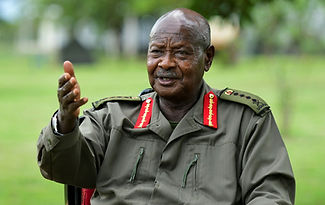
Joseph Kabila
Joseph Kabila Trial: Prosecutor Demands Death Penalty
In Kinshasa, prosecutors seek the death penalty for Joseph Kabila, accused of treason and aiding Rwanda-backed rebels in Congo’s unprecedented trial.
Published:
August 23, 2025 at 4:03:48 PM
Modified:
September 11, 2025 at 12:54:19 AM
The High Military Court in Kinshasa heard extraordinary closing arguments this Friday, with the prosecutor calling for the death penalty against former president Joseph Kabila.
On 22 August 2025, General Lucien René Likulia, the Auditor General of the Armed Forces of the Democratic Republic of Congo (FARDC), asked the High Military Court to sentence Joseph Kabila Kabange, Congo’s former president, to death.
Kabila, who is being tried in absentia after fleeing the country, faces a long list of charges: treason, participation in an insurrection, crimes against humanity, wilful killings, rape, torture, deportation, and the forced occupation of Goma.
The prosecution alleges that since the start of Rwanda’s renewed aggression in eastern DR Congo, Kabila has secretly supported the M23 rebel movement, accused of receiving men and weapons from Kigali.
On 23 February 2025, South Africa’s Sunday Times published an article in which Kabila defended the M23 as “a people’s aspiration” and “not a Rwandan proxy.”
Survivors and officials say he showed no compassion for the thousands of civilians massacred in Goma (January 27, 2025) and Bukavu (February 15, 2025) during the M23-RDF offensive.
On 29 May 2025, he reportedly traveled via Kigali to Goma to publicly endorse the rebels’ cause.
Prosecutors argue these actions amount to active collaboration with Rwanda, considered an aggressor state by the UN under Resolution 2773.
Lawyers representing the Congolese state, North Kivu, and South Kivu provinces demanded $24 billion in damages for harm caused to the population.
They also called on the court to strip Kabila of his Congolese identity, insisting he should be recognized by his birth name, Hyppolite Kanambe Mtwale.
During the trial, they presented documents suggesting that even while in office, Kabila’s signature carried the initials “HK” - interpreted as proof that he usurped a Congolese identity throughout his 18 years in power.
To support their case, the civil party lawyers referred to the testimony of Eric Nkuba Shebandu, a senior figure in the rebel group Alliance Fleuve Congo (AFC), arrested in Tanzania in January 2024 and later presented to the press in Kinshasa.
Nkuba allegedly revealed that Joseph Kabila personally coordinated political recruitment for the AFC, working with figures like Claudel Lubaya, Joseph Olenghankoy, and Patient Sayiba. According to his statement, Kabila offered large sums of money and promises of future appointments to bring Congolese politicians into the rebel fold.
What Comes Next
The High Military Court’s verdict will be watched closely across Congo and internationally. The demand for the death penalty is historic; never before has a former Congolese head of state faced such a request.
For supporters of President Félix Tshisekedi, this case is about accountability and sovereignty. For Kabila’s allies, it is political persecution meant to silence a rival and reshape Congo’s power map.
Either way, the trial marks a turning point. As one Kinshasa observer put it: “This is no longer just about Joseph Kabila, it is about the future of justice in Congo.”
Keep Reading



